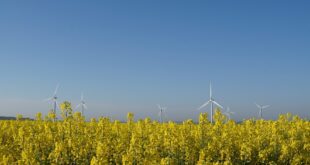Fossil Fuels: From Past to Present and Future Uncertainty
The Dawn of Fossil Fuels
The use of fossil fuels dates back thousands of years when ancient civilizations discovered oil seepages, which they used for lighting and heating. However, the industrial revolution kindled a massive surge in the exploitation of natural resources, especially coal, oil and gas.
The Present State of Fossil Fuels
Presently, the world still runs on fossil fuels. According to the U.S. Energy Information Administration, 80% of the world’s total energy comes from petrochemicals – crude oil, natural gas and coal. However, it has now become crystal clear that there’s a need for other sources of energy. The use of non-renewable resources poses several threats to the environment, including natural disasters such as oil spills, air pollution and severe climate changes.
The Uncertain Future
Despite widespread use, fossil fuels face an uncertain future, with competing alternative energy sources, such as solar and wind, gaining ground globally. Renewable energy sources continue to become more affordable and available, proven to harmoniously coexist with the environment. With sustainability at the forefront of international development efforts, fossil fuel usage is out of line with the global agenda, and investing in cleaner energy sources would seem financially viable.
Additionally, the forces of climate change exerted by extensive usage of fossil fuels are a known serious threat on humanity, causing rippling consequences from escalating global temperatures and the melting of ice caps. As available evidence, such as the Nobel-rewarded Intergovernmental Panel on Climate Change detailed reports, proves fossil fuels’ negative effects, large corporations individuals ought to change rules, ranging from regulations to funding, in favor of more integration of renewable energy sources. Currently, a combative group that introduces loud dissension is the outspoken individuals who work in the field of, still-relevant but may soon seem outdated, industries.
In conclusion, recognizing fully resourced natural resources profits allowed the unabated growth of standardized utility infrastructures, primarily owing to financial backing targeting equity enhancement, at the new millennium online era. Developments in the sciences, however, served as a stimulus creating a new idea, promoting responsible decision-making practices. Policymakers and specialists foresaw this question coming a long time ago regarding natural resource depletion problems and intergenerational sustainability within human populations globally, which effectively gave impetus, luckily available for continued sustainability approaches, to diminish and plan inefficiencies to renewable energy sources in favor of fossil fuels. Even though current policies tend to discourage carbon-intensive energy generation proposed evolving problems, marketing its move indigenously or getting substantial help public from people, applications witnessing enthusiastic finance and labor incentivization programs ensure timely decentralization of renewable developments.
 Mind Uncharted Explore. Discover. Learn.
Mind Uncharted Explore. Discover. Learn.





I remember when I was a kid, my dad used to tell me stories about how he used to have to walk to school uphill both ways in the snow. I thought he was just being dramatic, but now I realize that he was probably just talking about the days when we didn’t have cars and had to rely on horses or our own two feet to get around. It’s amazing to think about how much our world has changed in just a few hundred years and how much it will continue